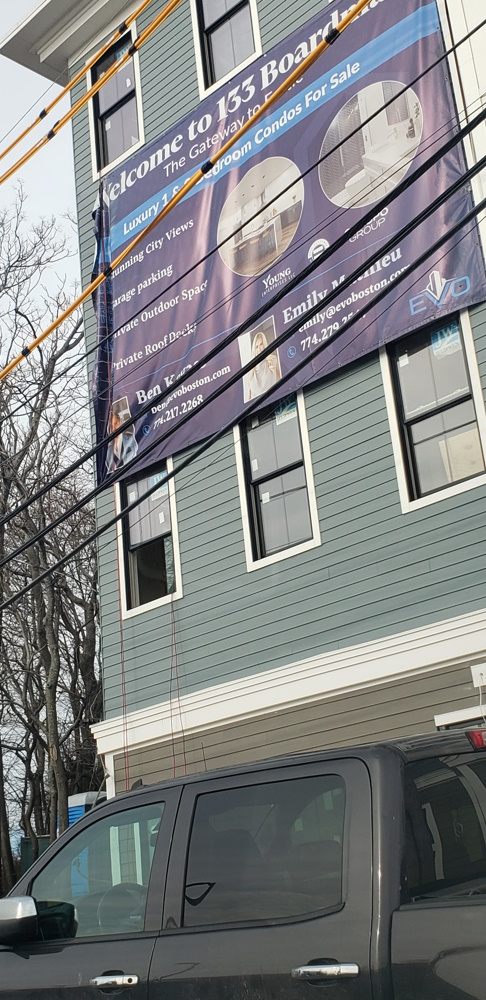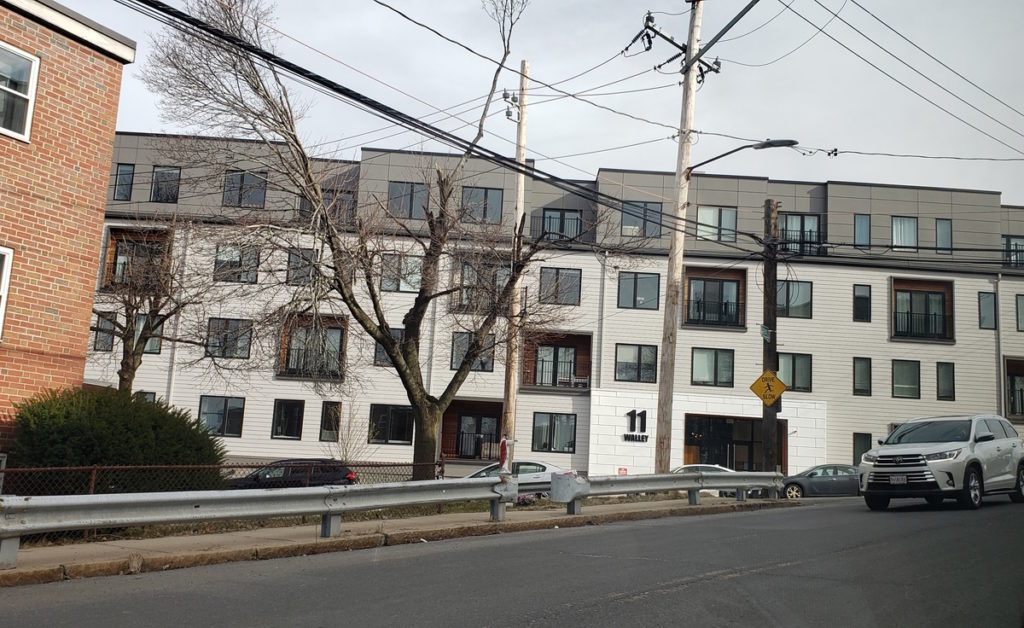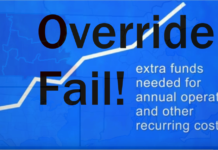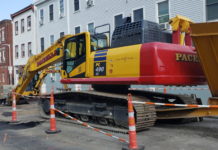By Matt Robare
SPECIAL TO EASTBOSTON.COM
Mayor Michelle Wu is wading into uncertain waters with her rent stabilization proposal.
Many Bostonians are feeling the squeeze when it comes to rent. Officials consider an individual or household rent-burdened if they pay 30 percent or more of their annual income in rent, with 52 percent of Boston households meeting that definition, according to the Mayor’s Office of Housing.
Unsurprisingly, the lower your income the more likely you are to be rent burdened, with 77 percent of households making under 30 percent of Boston’s area median income (which ranges from just under $25,000 a year for a single person to a little over $41,000 for a family of six) being rent burdened. A further 28 percent of all households are severely rent burdened, paying 50 percent or more of their annual income.
Wu’s proposal, which was approved by the City Council last week, would limit rent increases to at most 10 percent a year, plus an amount based on the Consumer Price Index, with exceptions for owner-occupied properties of up to six units, properties where owners and tenants share bathroom or kitchen facilities and newly built buildings for 15 years. It would also set up a Rent Board to determine allowable increases and try to resolve landlord-tenant disputes before they go to Housing Court.
While derided by the Greater Boston Real Estate Board, an association of landlords, as rent control, rent stabilization is different in that it theoretically is supposed to limit rent increases to a level designed to keep it economical for landlords to continue renting` units while protecting tenants from large, arbitrary sudden rent increases.

City Councilor Ricardo Arroyo told Boston.com they were hearing of rent increases as high as 200 percent in one year. By contrast, rent control fixes rents, unless the landlord can show cause for raising them – and rent boards had a reputation for refusing even modest increases.
While some lucky people under rent control got very good apartments for very good prices for a very long time, it was also a cause of insurance fraud, as landlords who were locked in to rents in some cases from the 1940s paid people to torch their buildings because the rent no longer covered maintenance or the mortgage.
Things go so bad that Swedish economist Assar Lindbeck declared “In many cases rent control appears to be the most efficient technique presently known to destroy cities – except for bombing.” Yet the concept of rent control is popular. A recent poll by Northwind Strategies, a public relations firm, finds that 65 percent of likely Massachusetts voters support caps on rents.
What complicates the housing crisis in Boston is that the city and metro area are increasing in population and jobs – but not adding nearly enough new housing stock. In other parts of the country, a new home can be built and sold profitably for as little as $250,000. In Boston, the cost of land and construction are both higher than elsewhere, while the municipalities across the region use their zoning powers to both restrict the amount of housing that gets built and make it more expensive, such as by requiring granite curbs, generous setbacks and side yards and off-street parking — a single parking spot, whether underground or in a parking garage, can cost as much as $100,000 to build. Cities and towns also make housing more expensive through their affordable housing programs – under inclusionary zoning ordinances, developers are required to set aside a portion of the housing units in new buildings as affordable to people within certain income limits, but these cost the same to build as market rate homes, so the developer has to bear those costs still.
Most of the Boston area inclusionary zoning programs to allow density bonuses, which are additional units the developer is allowed to build to make up for the ones set aside, but Boston itself does not have this provision.
Not only are there simply more people competing for essentially the same amount of housing as there was in 1990, when there were about 800,000 fewer residents in the metro area, but the people here are also wealthier.

According to Statista, in 2021 Greater Boston’s median household income was the eighth highest in the country at $100,750 – higher than New York City, Los Angeles, Chicago, Houston and Philadelphia. Because Bostonians are wealthier than ever they can outbid people with lower incomes for existing housing when there’s not enough new housing.
This is a bad situation, which rent regulation does nothing to alleviate – and which it can make worse. In New York, with its significant and politically active population of middle income and even wealthy renters, rent control was expanded to new buildings several times under various programs, which eventually had a chilling effect on residential construction in the city. While Wu’s rent stabilization program currently exempts new buildings for 15 years, there will be pressure to include them in a sort of rent regulation slippery slope.
Rent stabilization advocates say the point of the policy isn’t so much to fix housing in Boston as prevent displacement. But the effective freezing of the rental market can create problems as bad as displacement – people need to move for reasons other than rent increases, after all, so by creating a situation where ending a tenancy allows a landlord to reset the rent, people could end up trapped in a tenancy, unable to move within the city, because no one wants to risk giving up their rent stabilized apartment. In the longer run, rent stabilization, combined with the underlying housing shortage, could harm the city’s economy, with businesses unable to attract or retain workers because they cannot find a place to live, with the businesses themselves eventually having no choice but move where the workers are. This has arguably happened in San Francisco, which still has rent control, after all. Landlords could also get out of the rental business altogether, converting their units into condos, so that renting in Boston ends up like a game of musical chairs.
Instead of a policy that will not address the problem, Wu should be tackling restrictive zoning, its byzantine permitting system and work on expanding the woefully underfunded voucher program. Even building more public housing would be preferable, as it would increase supply and provide affordable homes. In fact, a recently completed agreement to create a housing trust to protect existing affordable housing offers some promise. The people of Boston should demand solutions that benefit the city, instead of political grandstanding that plays off landlord-tenant conflict.
-30-
Originally published March 25, 2023
















